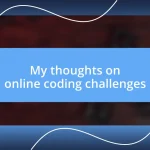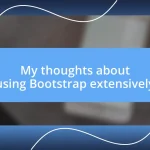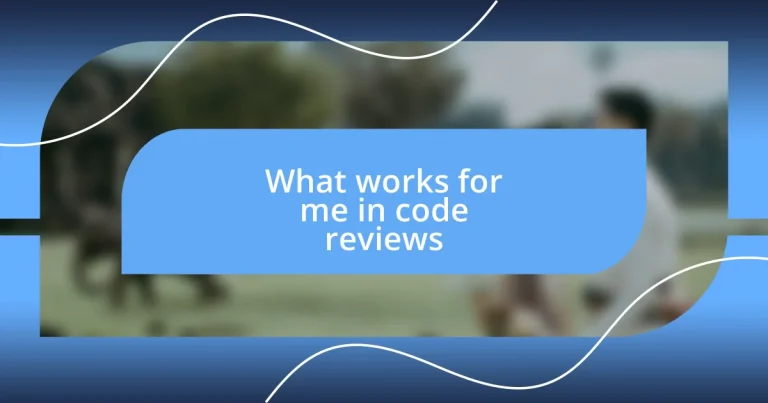Key takeaways:
- Building a code review culture requires trust, positive reinforcement, and clear guidelines to promote learning and collaboration.
- Techniques like pair programming, regular schedules, and encouraging questions enhance effective code collaboration and team camaraderie.
- Timely, varied feedback and fostering peer mentorship enrich the learning process and improve coding skills significantly.
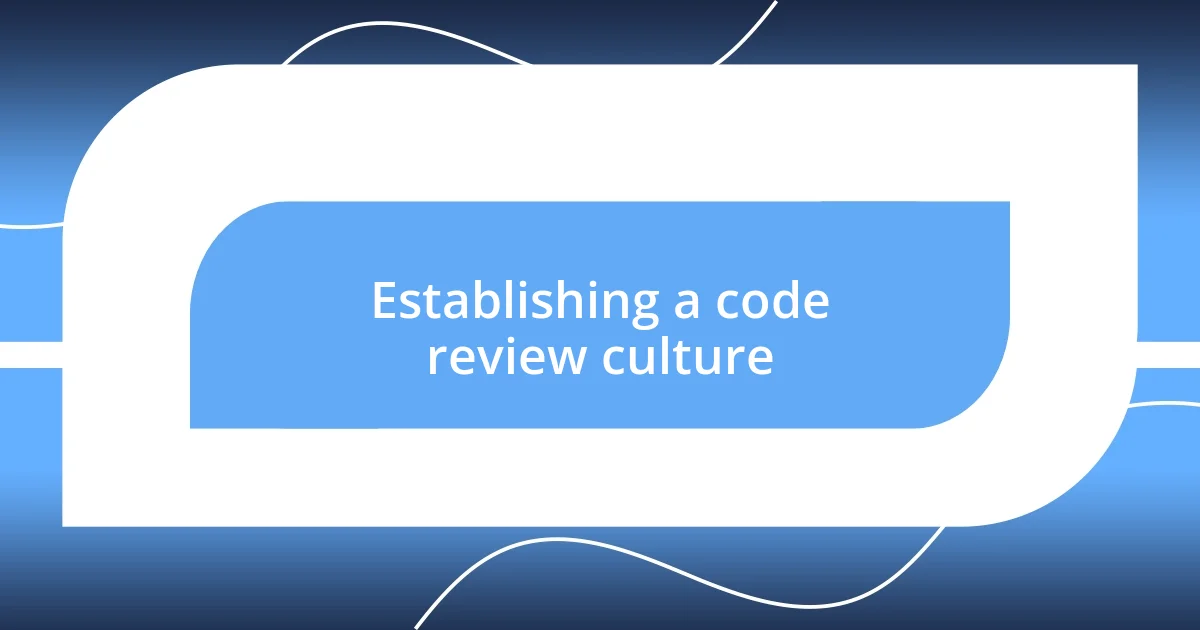
Establishing a code review culture
Establishing a code review culture requires more than just a process; it’s about building trust. I remember my first job where code reviews felt more like a punishment than a learning opportunity. It took time, but once we shifted to a mindset of collaboration, the anxiety around code reviews melted away, and our code quality improved tremendously.
It’s crucial to celebrate small victories during code reviews. I’ve found that giving positive feedback alongside constructive criticism encourages team members to open up. One time, I praised a colleague for their ingenious solution to a tricky problem, and it sparked a lively discussion that led us all to learn something new. Isn’t it fascinating how a few encouraging words can transform a challenge into a shared experience?
Creating guidelines for code reviews is also essential. I learned this the hard way when vague expectations led to confusion and frustration. By defining what we’re looking for—such as readability, efficiency, and adherence to best practices—we set our team up for success. It made me wonder, how can we expect improvement if we don’t provide clear direction? When everyone understands the goals, the culture of continuous improvement flourishes.
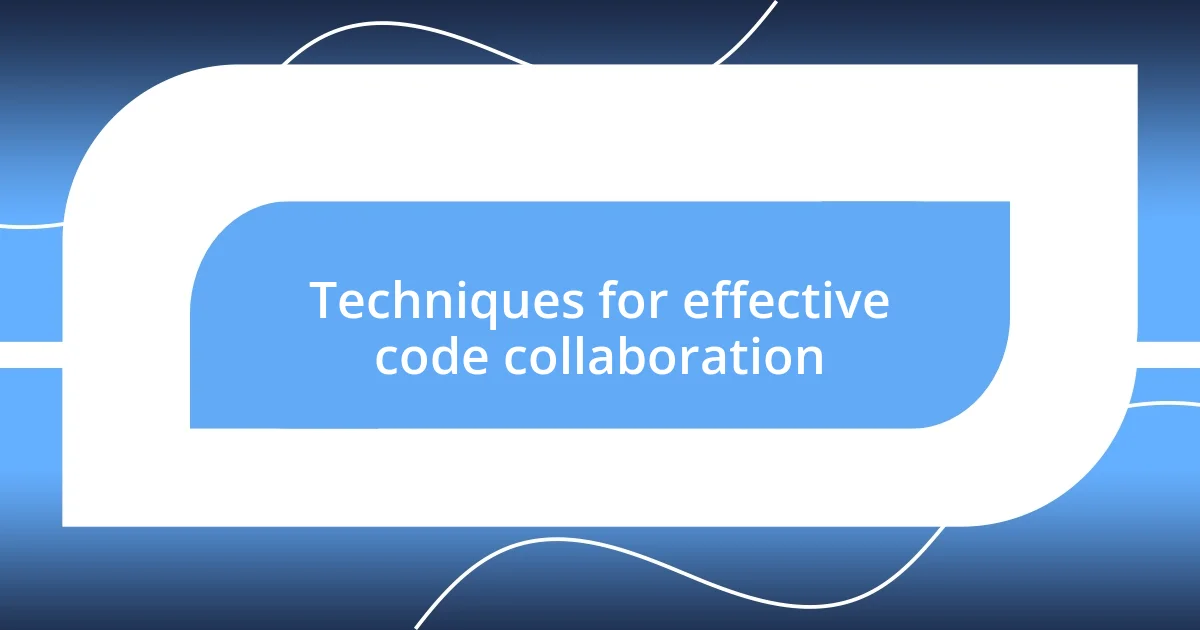
Techniques for effective code collaboration
One of the most effective techniques I’ve adopted in code collaboration is the use of pair programming. I recall a time when my colleague and I tackled a particularly challenging bug together. As we navigated through that code, we not only fixed the issue quicker than anticipated, but I also learned a couple of new approaches that I hadn’t considered before. That experience reinforced the idea that sharing knowledge in real-time can enhance our coding skills and foster a sense of camaraderie within the team.
Effective code collaboration can also be enhanced by establishing clear communication guidelines. Here’s a list of strategies I find invaluable:
- Set a Regular Schedule: Having scheduled code review sessions keeps everyone accountable and engaged.
- Use Collaborative Tools: Tools like GitHub or Bitbucket are fantastic for leaving comments and discussing code changes directly.
- Encourage Questions: Create an environment where questions are welcomed instead of avoided; it promotes deeper understanding.
- Rotate Reviewers: Mixing up who reviews code helps share knowledge across the team and prevents burnout.
These practices have not only streamlined our workflow but have also made the whole process feel less daunting. After all, collaboration should be uplifting, not stressful.
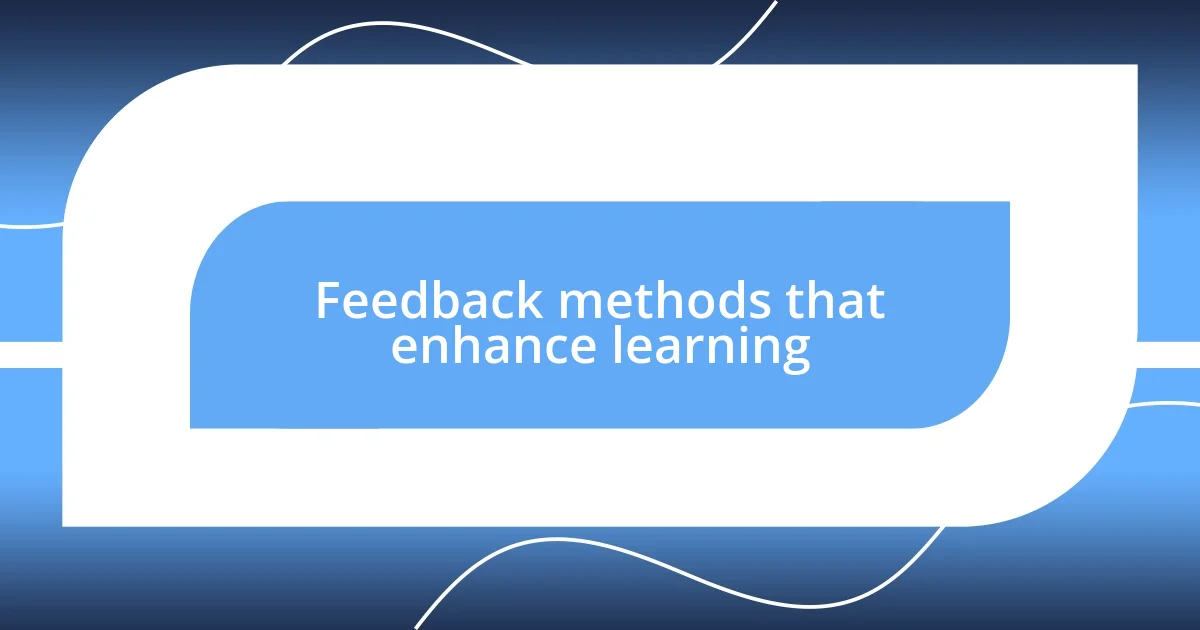
Feedback methods that enhance learning
In my experience, timely feedback is a game-changer during code reviews. There was a project where I received prompt, actionable insights from a peer shortly after submitting my code. That swift response not only kept the momentum going but also allowed me to immediately apply those learnings to my next submission. Isn’t it remarkable how immediate feedback can transform our skills practically overnight?
Incorporating a variety of feedback styles can also enhance learning. I’ve noticed that blending verbal feedback with written comments often helps solidify understanding. For instance, during one review, a senior developer narrated an approach while simultaneously highlighting parts of the code. This dynamic dual approach helped me visualize the concepts better. It made me realize—when we engage multiple senses, our retention improves dramatically.
Finally, fostering a culture of peer mentorship within the feedback process can be incredibly enriching. I once had the chance to mentor a junior developer through their code review, guiding them through constructive critiques while sharing my own struggles. Witnessing their “aha” moments was deeply fulfilling and reminded me how teaching others reinforces our knowledge. How often do we consider that our experiences can genuinely benefit someone else in their learning journey?









